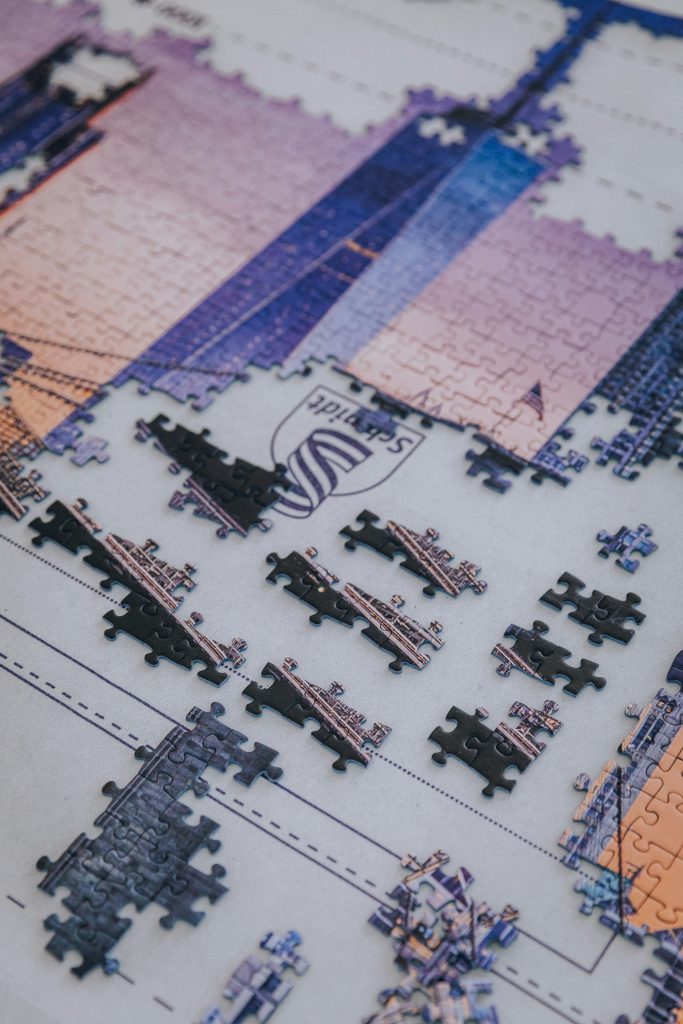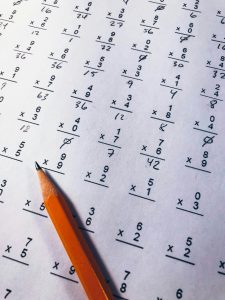Level Up: Math Puzzles for Advanced Young Learners

Are you a parent looking to enhance your child’s critical thinking and problem-solving skills? Are you searching for engaging activities that can level up your child’s learning experience? Look no further! In this article, we will explore the world of math puzzles for advanced young learners. These puzzles not only challenge and stimulate young minds but also foster critical thinking, problem-solving abilities, and mathematical reasoning.
Puzzles for 10 year olds offer an excellent opportunity to develop these skills while making learning math enjoyable and rewarding. So, let’s dive into the world of puzzle toys and explore some intriguing math puzzles that will help your child level up their mathematical abilities.
The Benefits of Puzzle Toys
Puzzle toys play a vital role in a child’s cognitive development. They provide a fun and interactive way to engage with mathematical concepts and promote critical thinking skills. Here are some key benefits of puzzle toys:
-
Enhance problem-solving skills: Puzzle toys require children to analyze, strategize, and find solutions. This process strengthens their problem-solving abilities.
-
Develop logical reasoning: By solving puzzles, children learn to think logically, make connections between different pieces of information, and derive meaningful conclusions.
-
Foster creativity: Puzzles challenge children to think outside the box and develop creative solutions to complex problems.
-
Improve spatial awareness: Manipulating puzzle pieces helps children develop a better understanding of spatial relationships.
-
Boost concentration and focus: Puzzle solving requires patience, attention to detail, and perseverance, which in turn improves concentration and focus.
By providing your child with puzzle toys, you are not only offering a fun and enjoyable activity but also nurturing their cognitive skills and preparing them for future academic success.
Math Puzzles for Advanced Young Learners
Math puzzles offer a unique way to engage advanced young learners. These puzzles challenge their mathematical reasoning, critical thinking abilities, and problem-solving skills. Here are some exciting math puzzles suitable for 10-year-olds:
a) Weight Problem:
Puzzle: Susan weighs half as much as Kate, and Brian weighs three times the weight of Susan. If the sum of their weights is 720 pounds, how much does each of them weigh?
Solution: Let Susan’s weight be x. Then, Kate’s weight is 2x, and Brian’s weight is 3x. Setting up the equation: x + 2x + 3x = 720. Solving for x, we find that Susan weighs 120 pounds, Kate weighs 240 pounds, and Brian weighs 360 pounds.
b) Consecutive Prime Numbers:
Puzzle: Which four consecutive prime numbers add up to 220?
Solution: The primes are 47, 53, 59, and 61. The sum of these four consecutive prime numbers is indeed 220.
c) Magic Square:
Puzzle: Create a magic square using numbers from 1 to 9 where the sum of each row, column, and diagonal equals 15.
Solution:
8 | 1 | 6
3 | 5 | 7
4 | 9 | 2
d) Riddle:
Puzzle: I am an odd number. If you subtract ten from me, you get fifteen. What number am I?
Solution: The number is 25. Subtracting ten from 25 gives us fifteen.
e) Logic Puzzle:
Puzzle: Two fathers and two sons make wooden chairs. If each makes a wooden chair, why are there only three produced?
Solution: There are only three people involved: a grandfather (father), his son (father), and his grandson (son).
f) Equation Challenge:
Puzzle: Apply the BODMAS rule and solve the equation: 20 + 30 × 0 / 1.
Solution: Using the BODMAS rule, we simplify the equation to 20 + (30 × 0) / 1 = 20 + 0 = 20.
g) Fraction Addition:
Puzzle: Add 3/4 of 216 to 3/5 of 75.
Solution: Calculating each part, we find that 3/4 of 216 is 162, and 3/5 of 75 is 45. Adding these results gives us a total of 207.
These math puzzles not only challenge advanced young learners but also help develop their mathematical reasoning and critical thinking skills. Incorporating such puzzles into their regular study routines can make learning math enjoyable and rewarding.
Make Learning Math Fun
To ensure that your child stays engaged and motivated while solving math puzzles, it’s essential to make learning math fun. Here are some tips to create an enjoyable learning environment:
-
Create a dedicated puzzle-solving space: Set up a comfortable and well-lit area where your child can focus on solving puzzles without distractions.
-
Choose age-appropriate puzzles: Select puzzles that match your child’s skill level and interests. Consider their mathematical abilities and choose puzzles that provide an appropriate challenge.
-
Explore a variety of puzzle types: Introduce your child to different types of math puzzles, such as logic puzzles, number puzzles, and geometry puzzles. This variety will keep them engaged and prevent boredom.
-
Encourage teamwork: Solve puzzles together as a family. This not only fosters collaboration but also creates a supportive learning environment.
-
Provide rewards and incentives: Offer small rewards or incentives to motivate your child to complete puzzles. Celebrate their achievements and acknowledge their efforts.
-
Incorporate technology: Use interactive puzzle-solving apps or online resources that offer a wide range of math puzzles. This adds an element of excitement and allows for independent learning.
By implementing these strategies, you can ensure that your child enjoys the process of solving math puzzles and develops a lifelong love for mathematics.
Math puzzles for advanced young learners are an excellent way to boost critical thinking, problem-solving skills, and mathematical reasoning. Puzzle toys provide an interactive and enjoyable learning experience that challenges young minds and prepares them for future academic success. Incorporating math puzzles into your child’s study routine not only enhances their mathematical abilities but also fosters creativity, logical reasoning, concentration, and focus.
If you’re looking for a comprehensive program that focuses on unlocking the full potential of your child’s mental abilities, consider SIP Abacus skill development programs. Their world-class curriculum, which uses the abacus tool and visualization techniques, is designed to develop strong mental math abilities and enhance overall intelligence. Studies have shown that children who complete the SIP Abacus program perform significantly better in math and reading at school.
So, why wait? Level up your child’s mathematical skills today with engaging math puzzles and expert guidance from SIP Abacus India!
Remember, when it comes to learning math, puzzle toys are the key to unlocking your child’s potential. Embrace the power of puzzles and watch your child’s mathematical abilities soar to new heights.



